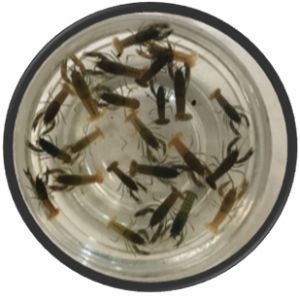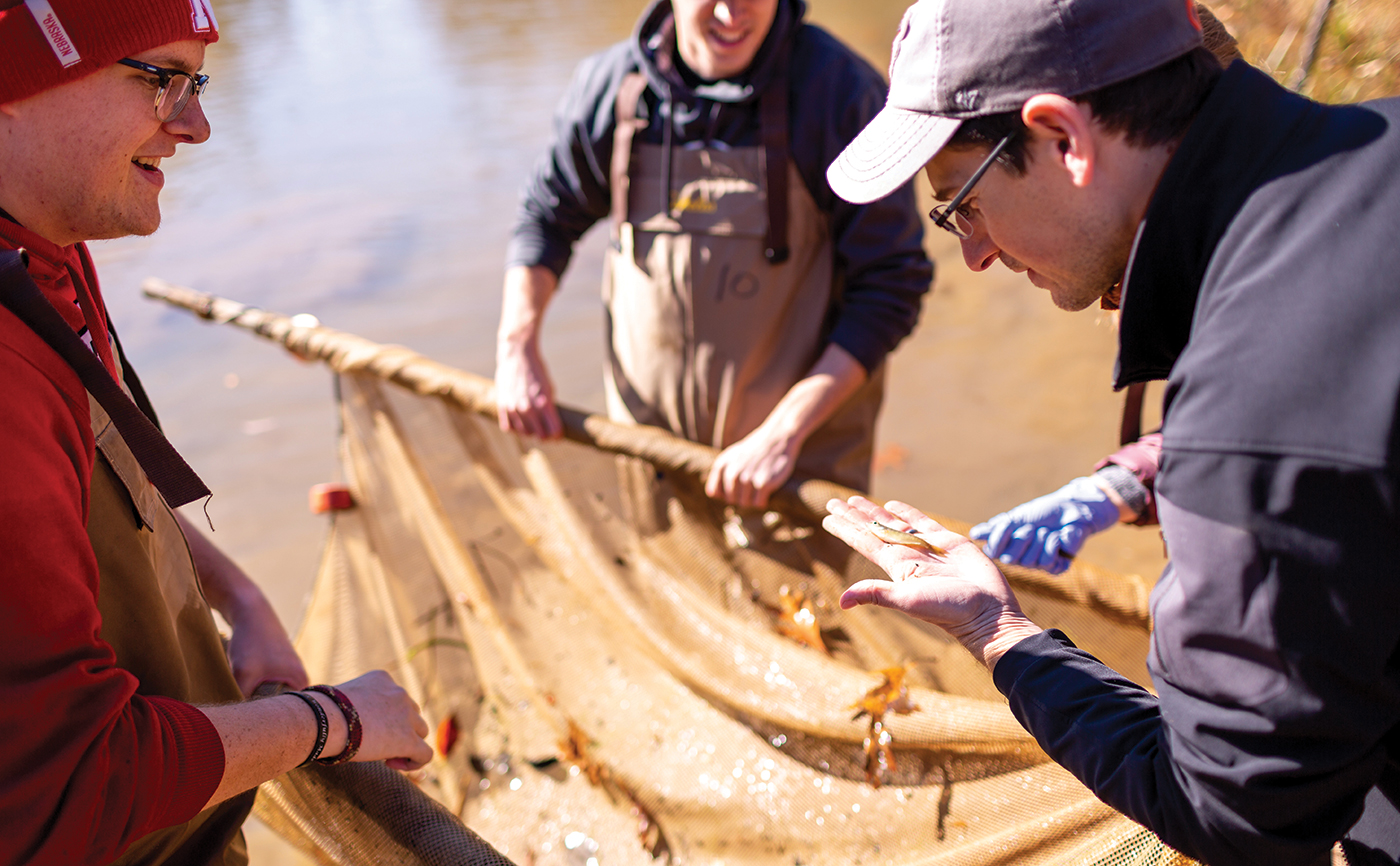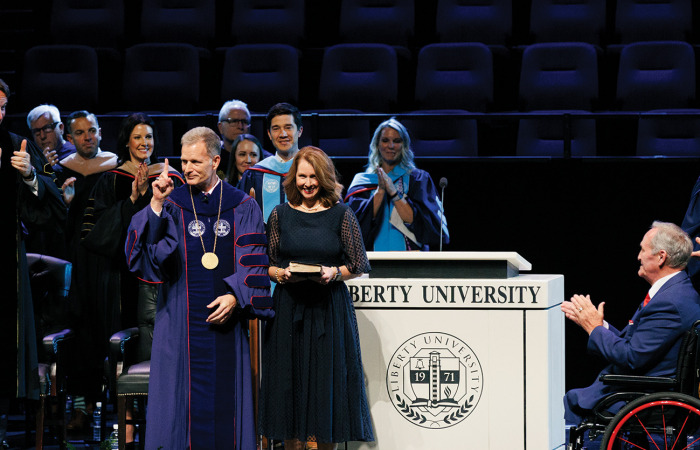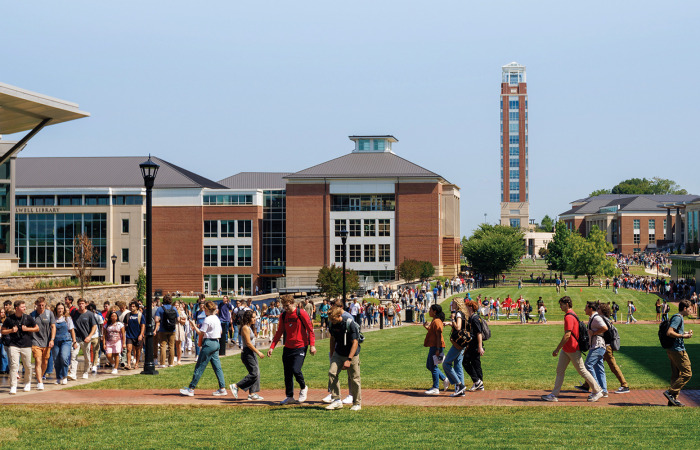Taking seriously their roles as stewards of God’s creations, faculty members in the Liberty University Department of Biology & Chemistry are leading hands-on research in wildlife conservation.
A team of Liberty researchers is working to preserve amphibian species threatened by the deadly chytrid fungus that is decreasing amphibian populations worldwide. Interestingly, salamanders in the eastern United States, including the Blue Ridge Mountains, are largely resistant to the fungus.
“Some of the bacteria on their skin have the ability to kill the pathogenic fungus that is trying to harm them,” explained Dr. Matthew Becker, assistant professor of biology.
Becker has been researching this unique characteristic for over a decade.
“We are studying the microbes on the skin to identify the bacteria so we can better understand which amphibians are susceptible (to infection) and why, hoping to find some patterns. The end goal is conservation, to figure out why our amphibians are OK so we can help these other amphibians that aren’t.”
Undergraduate students join him in the research, which is funded in part by the Virginia Herpetological Society (VHS) and Liberty’s Center for Research & Scholarship.
The Peaks of Otter — three mountain peaks in the Blue Ridge Mountains about 45 minutes from Liberty — are home to about 10 species of salamander, all of which Becker plans to study. The research could lead to the creation of probiotics to help affected populations battle the pathogen.
The students are currently collecting DNA samples from the seal and dusky salamanders and then isolating and identifying bacteria in a lab. They are also collecting DNA samples from eastern newts at the Hydaway Outdoor Recreation Center on Liberty Mountain. Two senior biomedical sciences students, Cat Read and Megan Duggins, shared their work at the VHS annual conference in Richmond, Va., last fall.
 > Dr. Kyle Harris, director of organismal and environmental biology, supervises student research on area crayfish.
> Dr. Kyle Harris, director of organismal and environmental biology, supervises student research on area crayfish.
One recent study focused on crayfish and branchiobdellidans (worms that live on the body surface of their host).
“These worms are known to eat accumulating bacteria off of the gills of crayfish,” Harris explained.
Students collected bacteria samples from local streams and crayfish to determine how the worms’ presence affected the species’ health. Students have also studied the effects of chemicals, such as low-level pesticides, on crayfish development. This research could impact how freshwater ecosystems are monitored and sustained.
Four of Harris’ students presented their research at the 2018 Ecology Society of America annual meeting in New Orleans, attended by 4,000 scientists from the nation’s largest professional community of ecologists. The trip was sponsored by the Center for Research & Scholarship.
> Other faculty who are working with students on wildlife conservation research include Dr. Norm Reichenbach, who conducts population research on timber rattlesnakes along the Blue Ridge Parkway, and Dr. Gene Sattler, who studies the migration dynamics of the northern saw-whet owl.
 The Liberty University Department of Biology & Chemistry offers undergraduate degrees in biology, biomedical sciences (pre-med), biopsychology, chemistry, environmental biology, forensic science, and zoology (including pre-vet). Graduate programs include a Master of Science in Biomedical Sciences and a Ph.D. in Anatomy & Cell Biology.
The Liberty University Department of Biology & Chemistry offers undergraduate degrees in biology, biomedical sciences (pre-med), biopsychology, chemistry, environmental biology, forensic science, and zoology (including pre-vet). Graduate programs include a Master of Science in Biomedical Sciences and a Ph.D. in Anatomy & Cell Biology.




